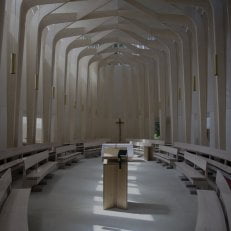HLF New Strategy Bulletin January 2019
Introduction
The Heritage Lottery Fund has a new name and brand – National Lottery Heritage Fund. This is clearly aimed at raising the profile of the National Lottery as a mechanism for funding good causes, in the ambition that this will help sell more lottery tickets.
As expected, the focus of the new lottery programmes is on outcomes for people (a mandatory requirement) with outcomes for heritage, which encompasses repairs and conservation, as a lower priority. For churches with a pressing need for repairs or conservation this could have a significant impact, as they will need to prove even more clearly than before how this benefits local people. Heritage being at risk is still a significant factor but it is not yet clear how this is dealt with in the application process.
In detail
There is a major geographical re-organisation with a more devolved structure (Scotland; Wales; Northern Ireland; and three areas of England: London and the South, Midlands and the East, and North) and focus on 13 priority areas. Also encompassed is
- a greater emphasis on landscape and nature heritage
- a focus on building organisational resilience
There will be a streamlined portfolio with almost all projects encouraged to apply for the National Lottery Grants for Heritage rather than a funding strand tailored towards a particular purpose. In general terms these will be
- National Lottery Grants for Heritage: £3,000 to £10,000
- National Lottery Grants for Heritage: £10,000 to £250,000
- National Lottery Grants for Heritage: £250,000 to £5million
New points to note are expressed in the revised outcomes
- “We will ask every project to achieve our new inclusion outcome: a wider range of people will be involved in heritage” – this is to be a mandatory requirement. Specific groups are listed.
- “People will have greater wellbeing.” This is an additional requirement. The strategy recognises that many applicants will be ill-equipped to plan and deliver this and there are plans for a UK wide funding stream to encourage development in this area. “However, our consultation revealed a lack of confidence that heritage bodies were equipped to deliver wellbeing effectively. We will therefore focus one of our first UK-wide heritage campaigns on wellbeing. Alongside this funding from 2020–21 we will deliver a programme of thought leadership, sharing practice and collaboration to build heritage organisations’ capacity and confidence.”
Additional points to note:
- There is to be a greater emphasis on social investment so that lottery funds can be recycled. While the Framework doesn’t give a huge amount of detail the move to loans, impact investments and other non-grant products is significant. This, coupled with support for enterprises and for-profit/non-profit partnerships, means that the Fund recognises that a range of operational models – and associated support – is needed to strengthen the sustainability of the sector.
- While the emphasis on proper financial planning is to be welcomed many churches have good financial controls but no “formal“ business plan.
- An emphasis on involving “the community” both by applicants and in decision making.
- A greater focus on how the Grants for Heritage awards are recognised.
- In the applications for grants above £250,000 there will be a new requirement to submit the organisation’s “existing business plan” at stage 1 of the application, against which any new project related business plan might be measured.
For an informal discussion on how these changes may affect your plans, contact our heritage project planning and funding team: first@craigmyle.org.uk 01582 762441
The National Lottery Heritage Fund Strategic Funding Framework 2019-2024 can be read in full at: https://www.heritagefund.org.uk
Full details of application procedures and funding guidelines are also to be found on this website.







